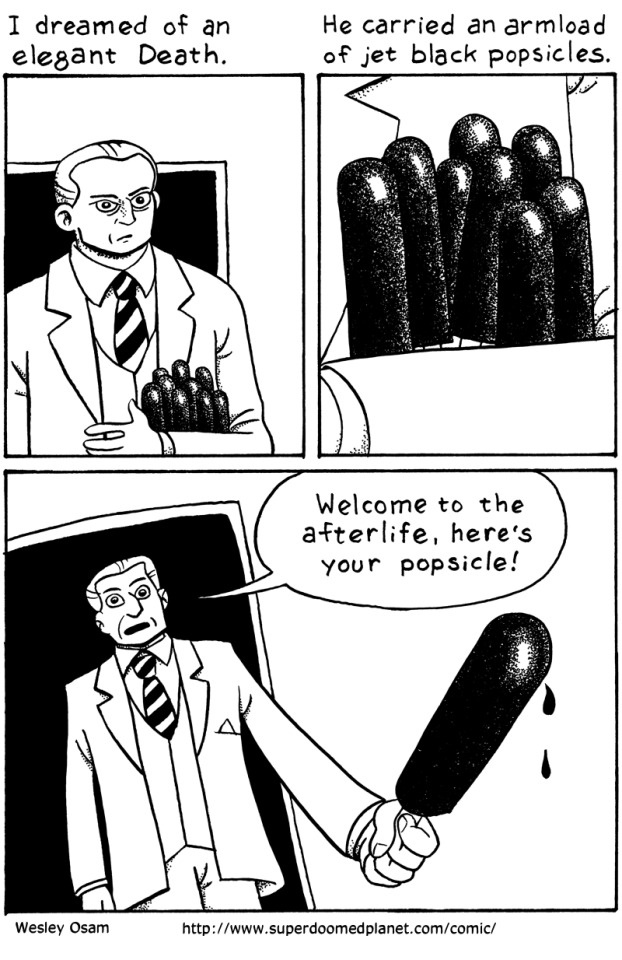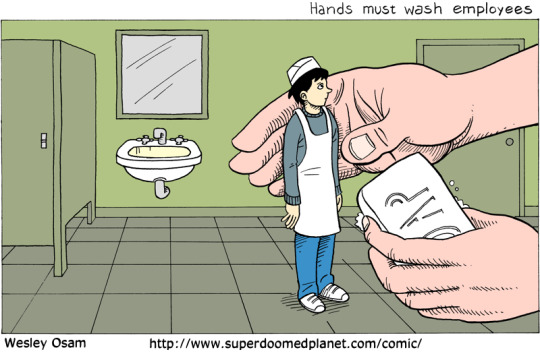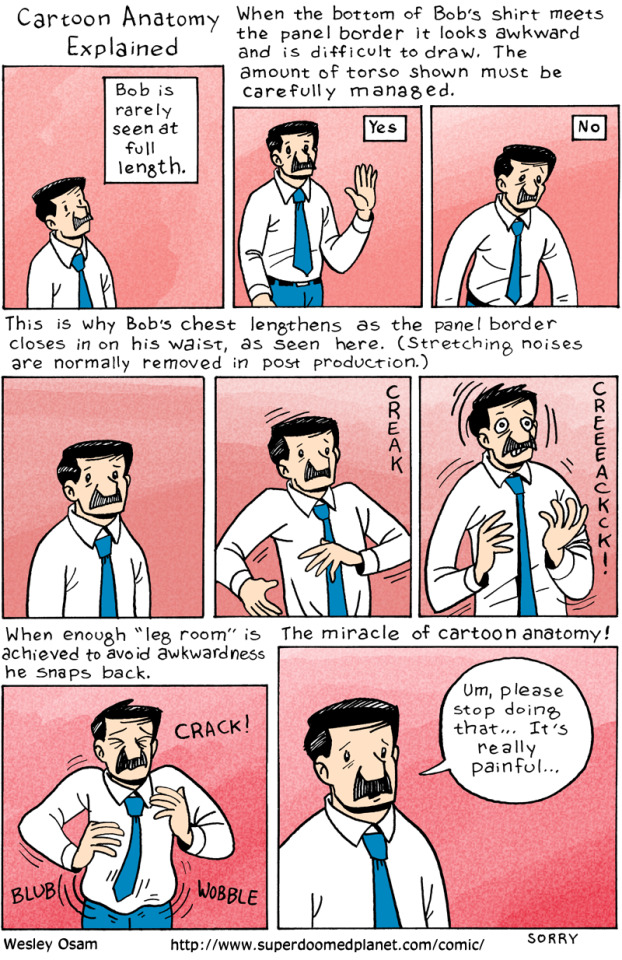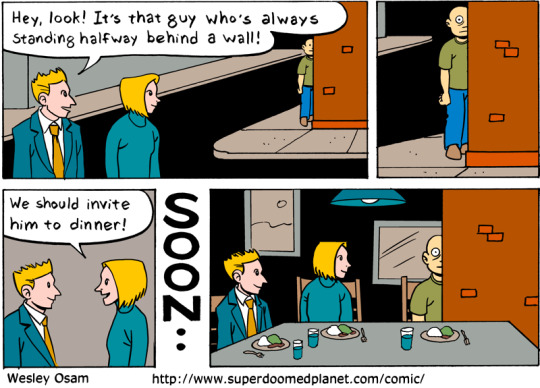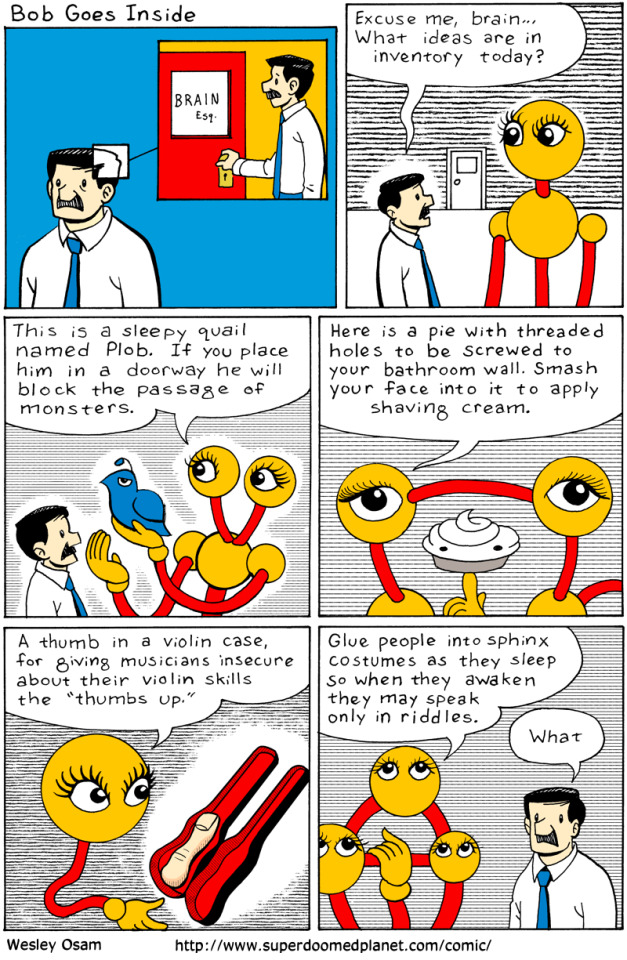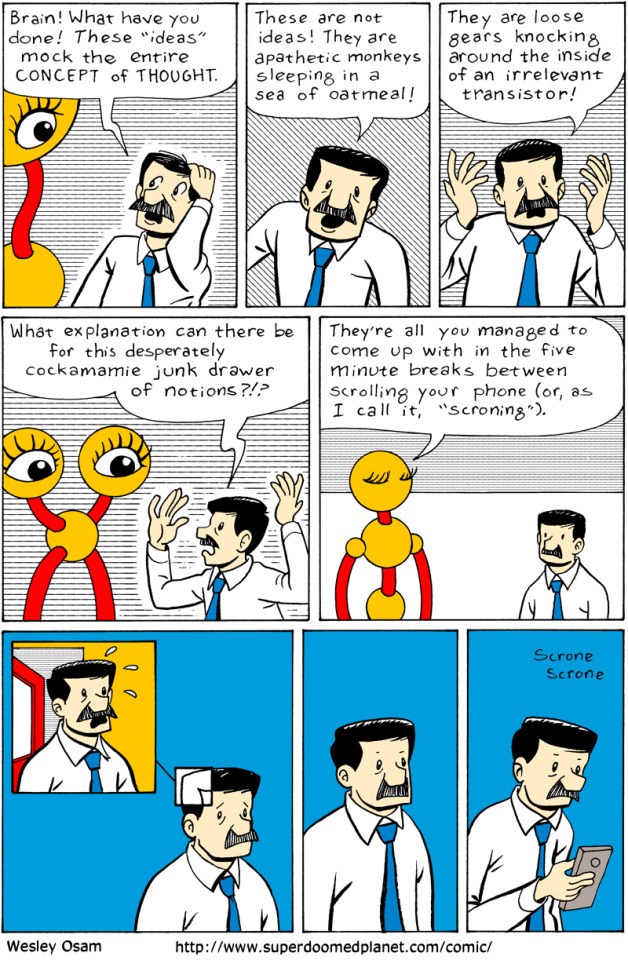An adjunct to http://www.superdoomedplanet.com/comic/.
Don't wanna be here? Send us removal request.
Text
I haven't been using Tumblr recently, but since social media is the main way people find links these days I thought I should link to my two blog posts of any substance in recent months. First, one on two books by the SF writer Doris Piserchia. Second, I just this weekend finished a review of Stanislaw Lem's collection Imaginary Magnitude.
0 notes
Text
Remix SFF
(Posting these thoughts on social media instead of my blog because they're not fully formed.)
I’ve been thinking about the occasional attempts to define current movements in science fiction and fantasy lit, equivalent to cyberpunk or the New Wave. I don’t think any of these have been successful, and I doubt there’s a single dominant movement. But I think there’s currently a distinct and influential wave of remix SFF—stories retelling or rebooting specific earlier stories or characters, either explicitly or only nominally disguised.
I was looking at the Hugo nominees again and in both the Novel and Novella two out of six nominees, a third of each category, are repurposing specific stories or characters. In novels, the source for The Daughter of Doctor Moreau is obvious; the protagonists of The Spare Man are Nick and Nora Charles in the same way Solar Pons is Sherlock Holmes (spare means thin, get it, folks?). In novellas, A Mirror Mended is "Snow White" and What Moves the Dead is "The Fall of the House of Usher." Not a majority, but a significant minority, especially considering these are some of fandom’s favorite stories this year.
A possibly related phenomenon are the kind of stories centered around genres, or the story elements fans call "tropes"; combining them like legos (i.e., the fact that it's a mashup of trope X with genre Y is the main selling point) or writing stories that take them as their thematic material (not using a trope, but about the trope). When these stories focus on genres they're often playing with stereotypes of those genres—the most generic possible versions, what people who aren't into those genres imagine when they think about them. (Like, The Kaiju Preservation Society is not in but about the kaiju genre—it's a vehicle for speculation on how kaiju would work physically and what kind of world they'd inhabit. But despite the occasional fannish reference it shows no evidence that the author has ever seen any kaiju movies beyond maybe Cloverfield; these are the most generic kaiju possible, with none of the personality of the Toho monsters that defined the genre.)
I'm not sure where I'm going with these observations, but I think it's a real trend, and it's interesting to think about why this might be happening and where it's going.
0 notes
Text

This comic is based on an actual dream about the worst mystery novel ever.
1 note
·
View note
